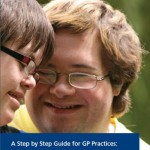
Down syndrome is the most common cause of learning disability in the UK and increased risk of developing Alzheimer’s dementia is well documented.
In her debut blog, Silvana Mengoni looks at a paper which uses three case studies to consider some interesting trajectories of dementia which raise some interesting questions.
[read the full story...]






